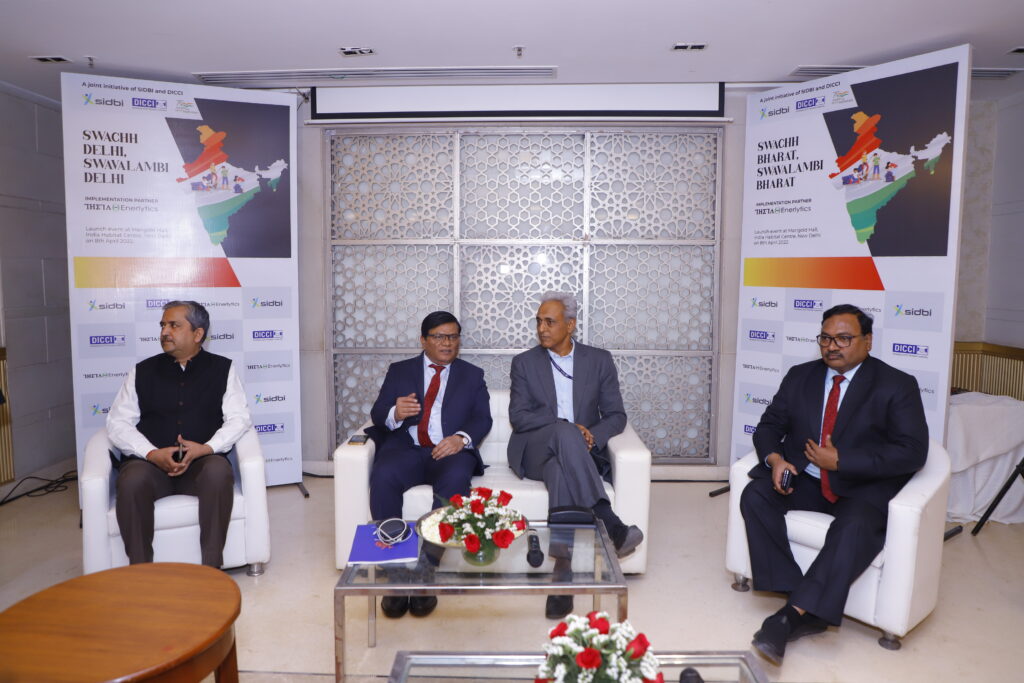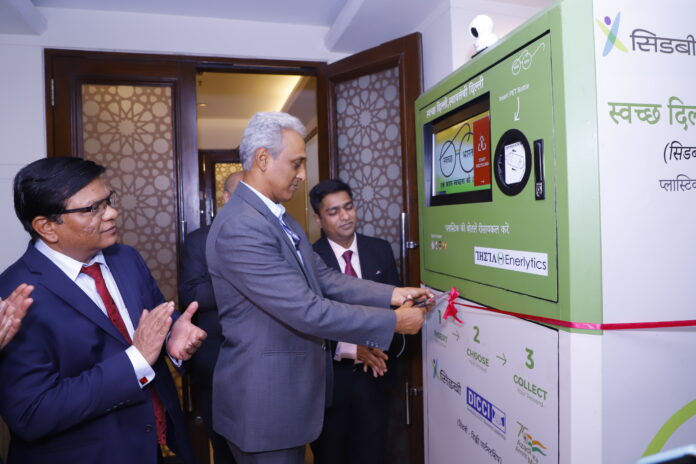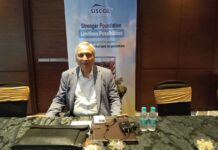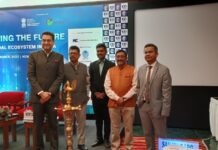As Part Of CSR Initiative Aimed At Curbing Carbon Footprint ‘Swacch Delhi, Swavalambi Delhi’– New Delhi, 08, April 2022: Shri Sivasubramanian Ramann, Chairman and Managing Director, Small Industries Development Bank of India (SIDBI) jointly with Padmashree Shri Milind Kamble, Founder Chairman, Dalit Indian Chamber of Commerce & Industry (DICCI) aims to seek installation of 1000 Plastic Reverse Vending Machines (RVMs) as part of their CSR funds directed towards curbing carbon footprint, at the announcement of ‘Swachh Delhi, Swavalambi Delhi’.
This first of its kind joint Initiative will subsequently create employability for entrepreneurs from weaker sections of society mobilised and handheld by DICCI. These Entrepreneurs would also get supplementary Income for the maintenance of these machines from Advertising carried out on them. The Plastic Reverse Vending Machines (RVMs) are developed by Theta Enerlytics in India.

Shri Sivasubramanian Ramann, IAA&S and CMD, SIDBI while announcing the initiative said “I’d like to see these more of these machines (RVMs) at as many public places like malls, metro stations, parks etc. as possible. To be able to get plastic recycled will call for a whole lot more than just passion, it would take many more corporates to come forward and do their bit in reaching carbon neutrality. This small initiative spins to SIDBI’s part in fulfilling our National commitment at COP26. SIDBI is designed by an act of parliament to take small businesses forward, so we’ll continue to support the start-ups like Theta Enerlytics with a worthy cause.”

Padma Shri Milind Kamble, Chairman, DICCI said “It is our endeavour to map out the places for the installation of RVMs and oversee the maintenance of these machines. We are looking at installing up to 60 plastic reverse vending machines across Delhi/NCR in the first phase. We’ve already in the process of installing up to 40 RVMs in Kashi. The idea is to cover every nook and corner of the country. Plastic pollution is only ever-increasing year by year, disturbing the marine ecosystem. And now this has reached our blood. For the first time scientists have found tiny particles of microplastics in almost 80 per cent of the people tested. This is a dangerous precedent, and we must all come together to reverse it by safely disposing plastic waste.”
This initiative is intended to kindle a positive change in social behaviour of citizens by rewarding their responsible action of safe plastic waste disposal. RVMs are machines with sensors that accept only plastic bottles and then process the plastic by shredding it immediately. The machine will reject any other object automatically.
Important Announcement – EasyShiksha has now started Online Internship Program “Ab India Sikhega Ghar Se”
Mr Karan Dhaul, Chairman and Co-founder of Theta Enerlytics, the implementing agency added “India has about 5000 registered plastics manufacturing/recycling units and about 1000 unregistered units. This is far too less as compared to the amount of plastic waste produced annually (about 660,787.85 tonnes in India). So, we need a unified effort and active awareness to be able to process the plastic waste. And what better way than incentivising people by adding value to their waste! This is the first time in the country when users of E-Bikes, E-Scooters and E-Rickshaws will be able to charge their vehicles without paying any money, but just by responsibly disposing off plastic bottles. We plan to add more features including specific metal and single use plastic in these machines.”
The Plastic Collected will be strictly used for Recycling by Partner Organisations under the MSME Initiatives. To Ensure Carbon Neutrality, the Entrepreneurs Involved use electric vehicles for transportation of the Collected Plastic.
This Initiative was designed keeping in mind the Prime Ministers’ Swach Bharat Mission 2.0, Atmanirbhar Bharat Mission, Atal Mission for Rejuvenation and Urban Transformation (AMRUT) 2.0, Stand Up India Initiative, and National Commitments given towards Carbon Neutrality at COP26.
Also read Film Actress Bhagyashree felicitated Leaders of Rajasthan
Even though the proportion of recyclable plastic (PET and PVC) in India’s total plastic waste is 94%, but around 79% of plastic ends up in the natural environment including landfills.
Chemicals used to produce plastic contain toxins that impair the immune system among other adverse effects to the skin, eyes, and brain. As plastics degrade in these landfills, microplastics are released to the soil, water, environment and eventually enter the food chain. While burning plastic releases hydrochloric acid causing respiratory problems.
Visit the link to more about EasyShiksha.





































































